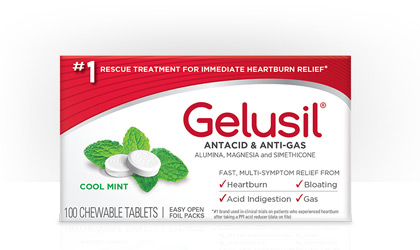What causes gas?
Gas forms when you swallow too much air or when your body doesn't digest certain foods properly. Everyone gets it and most people pass it 13 to 21 times a day.1 In normal people, about 50% of the gas passed from the rectum comes from swallowed air.2
Gas is a source of abdominal bloating and discomfort, too. Many people who have heartburn experience gas as well.


